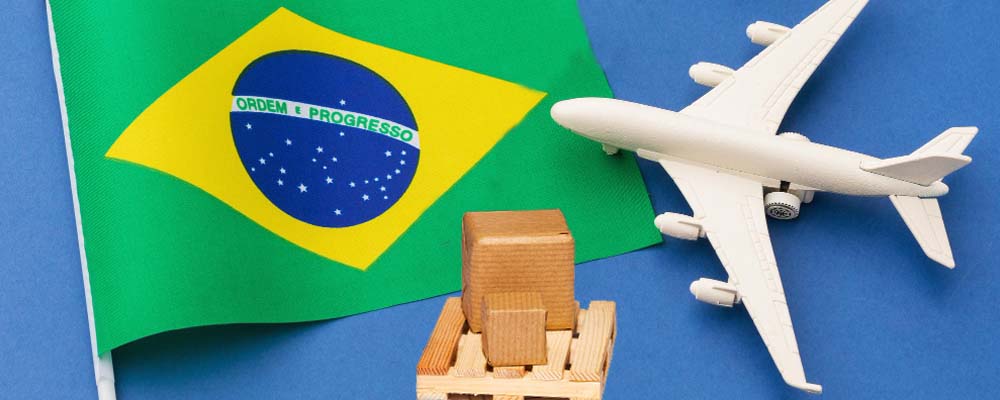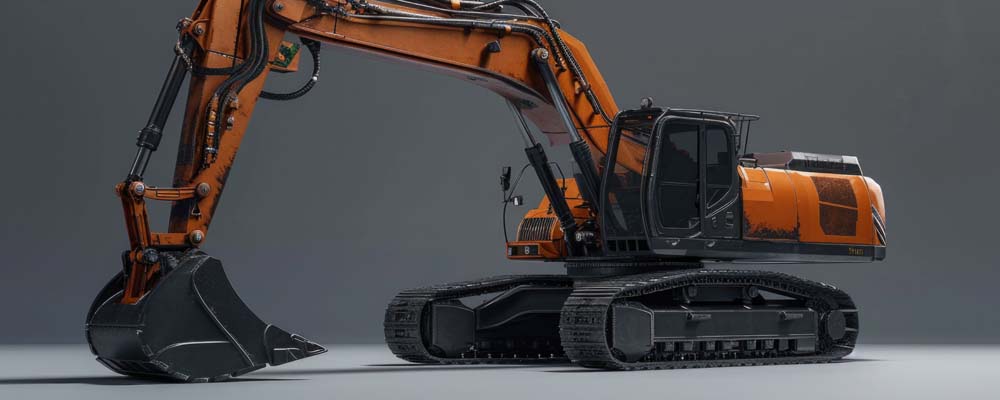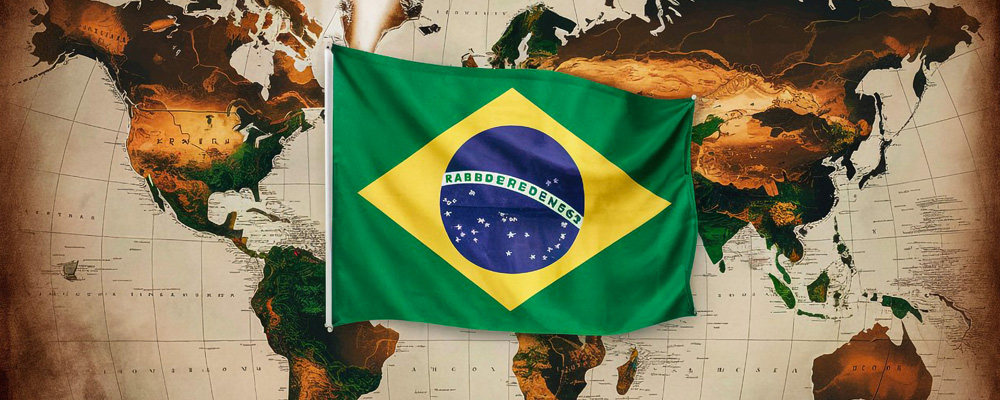
Brazil is a powerhouse in global trade, with its extensive coastline and strategic positioning in South America. For freight forwarding companies, logistics providers, importers, and exporters, understanding Brazil’s port infrastructure is crucial. In this blog post, we’ll explore the major ports in Brazil and provide insights into what you need to know to streamline your operations. From import regulations to leveraging technology, we’ve got you covered.
Why Export to Brazil?
Brazil stands out as a lucrative destination for international trade. Its diverse economy and large consumer market offer numerous opportunities. Exporting to Brazil can open doors to a market of over 210 million people. The country’s demand for various products, from machinery to consumer goods, makes it an appealing destination for businesses worldwide.
Furthermore, Brazil’s strategic location allows easy access to other South American markets. This geographical advantage enhances trade efficiency and reduces shipping costs. By establishing a presence in Brazil, companies can expand their reach within the continent.
Understanding Brazil Trade Infrastructure
Brazil’s trade infrastructure is a complex system that includes ports, railways, highways, and airports. The country’s vast size requires a well-coordinated logistics network to ensure smooth transportation. Ports play a crucial role in this network, serving as gateways for international shipments.
Investments in modernizing Brazil’s trade infrastructure have been ongoing. These improvements aim to enhance efficiency, reduce bottlenecks, and accommodate the growing volume of trade. Understanding this infrastructure is essential for businesses looking to optimize their supply chain operations.
The Importance of Brazil Ports in Trade
Ports are the lifeblood of Brazil’s trade industry. They handle a significant portion of the country’s imports and exports, making them vital for economic growth. Brazil’s extensive coastline boasts several major ports, each serving as a critical hub for different regions.
Efficient port operations contribute to reduced lead times and lower logistics costs. For businesses, this translates into timely deliveries and enhanced customer satisfaction. Understanding the strengths and capabilities of Brazil’s major ports can help companies choose the best entry points for their goods.
Major Ports in Brazil
Port of Santos
The Port of Santos is the largest and busiest port in Brazil. Located in São Paulo, it handles about 28% of the country’s trade. Its strategic location and extensive facilities make it a top choice for various types of cargo, including containerized goods and bulk cargo.
Santos offers excellent connectivity to inland transport networks, ensuring smooth movement of goods. Its modern infrastructure and efficient handling minimize delays. For businesses entering Brazil’s market, the Port of Santos is a prime gateway.
Port of Paranaguá
Located in the state of Paraná, the Port of Paranaguá is a key player in Brazil’s trade landscape. It is one of the largest grain-exporting ports in the world, making it essential for agricultural exports. The port’s infrastructure is designed to handle various types of cargo efficiently.
Paranaguá’s strategic location provides access to important agricultural regions. This makes it a preferred choice for exporting commodities like soybeans and corn. The port’s continuous investments in modernization and technology enhance its capacity and reliability.
Port of Rio de Janeiro
The Port of Rio de Janeiro is a major hub for international trade. Located in one of Brazil’s iconic cities, it handles a large volume of goods. Its proximity to industrial areas and highways makes it a strategic choice for logistics providers.
The port specializes in containers, bulk cargo, and petroleum products. Its advanced facilities and skilled workforce ensure efficient operations. Businesses benefit from its extensive services and its role in connecting Brazil to global markets.
Popular Imports to Brazil
Brazil’s diverse economy drives demand for a wide range of imported goods. Machinery and equipment, chemicals, electronics, and automotive parts are among the top imports, reflecting the country’s focus on industrial and technological growth. Consumer goods such as clothing, footwear, and electronics also see significant demand, driven by a growing middle class with increasing purchasing power.
Understanding the import trends and demands of the Brazilian market can help businesses tailor their offerings to meet specific needs and preferences. By aligning with market needs, companies can gain a competitive edge and establish a strong presence in Brazil. Additionally, businesses can benefit from forming strategic partnerships with local distributors and suppliers, further enhancing their market penetration and brand recognition. Analyzing consumer behavior and staying updated with regulatory changes can also provide valuable insights, ensuring long-term success in this dynamic market.
Navigating Brazil Import Regulations
Importing goods into Brazil involves navigating a complex regulatory landscape. Understanding customs procedures, tariffs, and documentation requirements is essential to ensure smooth operations. Failure to comply with regulations can result in delays, fines, and additional costs.
Collaborating with seasoned customs brokers and logistics providers can simplify and expedite the process. These professionals have the expertise to handle documentation, clearances, and compliance, ensuring that goods move seamlessly through customs.
Leveraging Technology for Efficient Trade
Technology plays a pivotal role in modernizing trade operations. Utilizing digital tools and platforms can enhance efficiency, reduce errors, and provide real-time visibility into the supply chain. Automated systems for documentation, tracking, and communication streamline processes and improve accuracy.
Investing in technology-driven solutions can give businesses a competitive advantage. From advanced cargo tracking systems to AI-powered analytics, technology empowers companies to make informed decisions and optimize their trade operations.
Building Strong Partnerships
Successful trade operations rely on strong partnerships with key stakeholders. Collaborating with reliable shipping lines, freight forwarders, customs brokers, and local suppliers ensures a smooth and efficient supply chain. Trusted partnerships can mitigate risks and enhance overall performance.
Networking within industry associations and participating in trade events can help businesses establish valuable connections. Building a robust network of partners enhances resilience and opens doors to new opportunities.
 Understanding Cultural Differences
Understanding Cultural Differences
Cultural understanding is crucial when conducting business in Brazil. The country’s diverse culture influences business practices, communication styles, and negotiation tactics. Building strong relationships with local partners and customers requires cultural sensitivity and adaptability.
Taking the time to understand and respect cultural nuances can foster trust and cooperation. Language proficiency, awareness of local customs, and a willingness to adapt to different business etiquettes contribute to successful interactions.
Sustainable Trade Practices
Sustainability is becoming a priority in global trade. Adopting eco-friendly practices not only benefits the environment but also enhances a company’s reputation. Implementing sustainable sourcing, reducing carbon footprint, and minimizing waste contribute to responsible trade practices.
Many Brazilian ports are taking steps towards sustainability. From reducing emissions to implementing green technologies, these initiatives align with global sustainability goals. Businesses that prioritize sustainability can strengthen their brand and attract environmentally conscious customers.
Conclusion
Brazil’s major ports play a pivotal role in the country’s trade landscape. Understanding and leveraging these ports can significantly enhance your business operations. From efficient logistics to cultural understanding, each aspect contributes to a successful trade strategy.
Ready to elevate your trade game in Brazil? Explore the potential of these major ports and position your business for success. For personalized assistance, reach out to our team and discover how we can help you achieve your trade goals.
Take the first step towards seamless trade operations today and unlock the potential of Brazil’s thriving market.





 Understanding Cultural Differences
Understanding Cultural Differences



